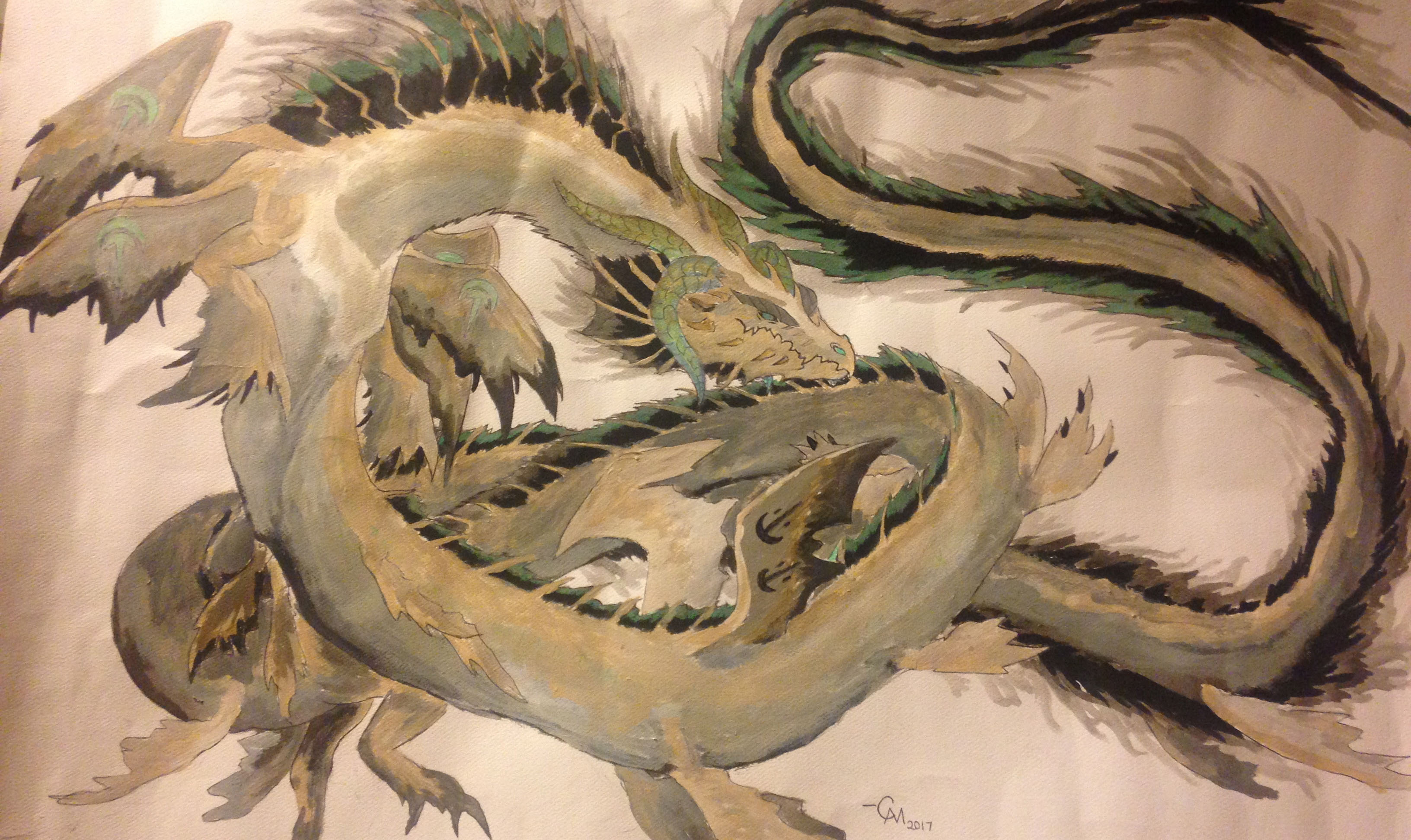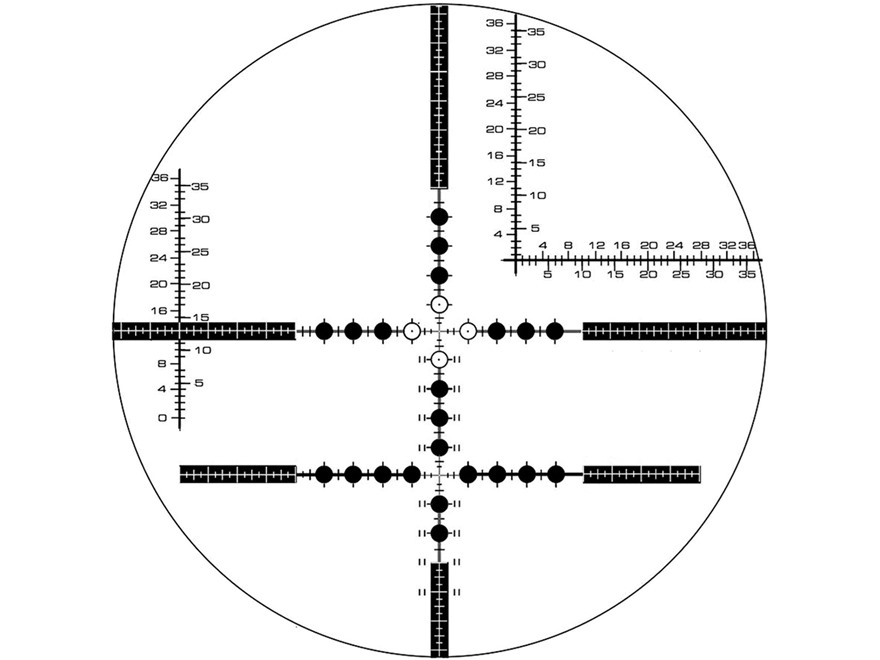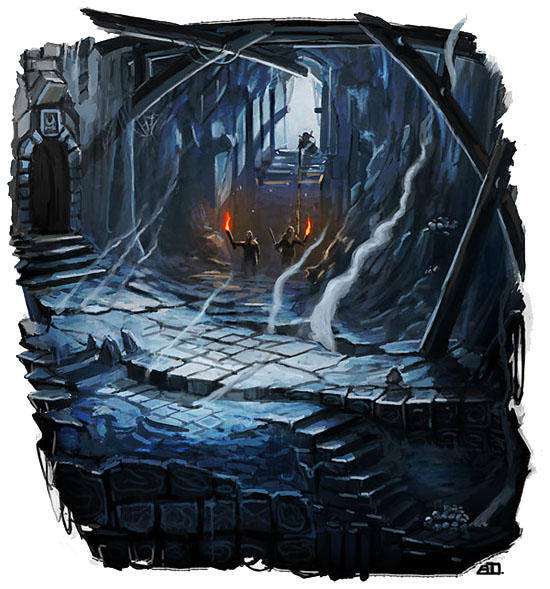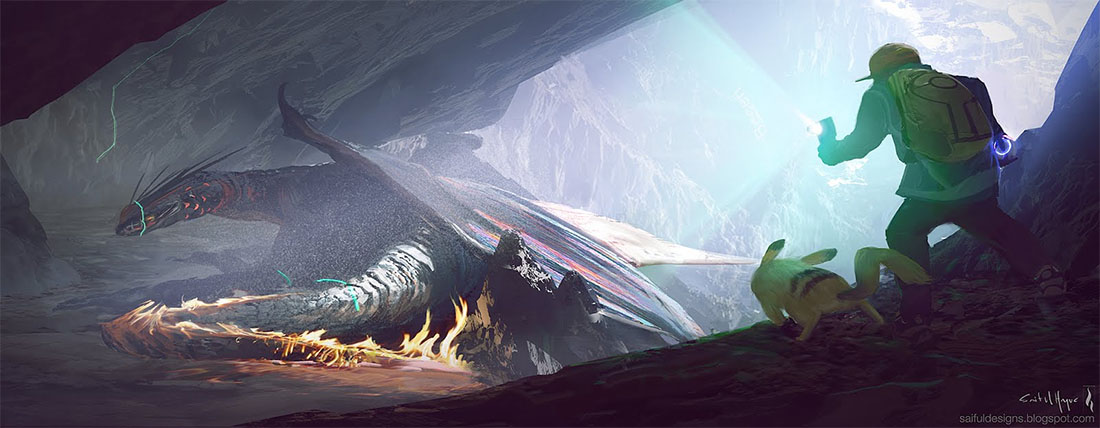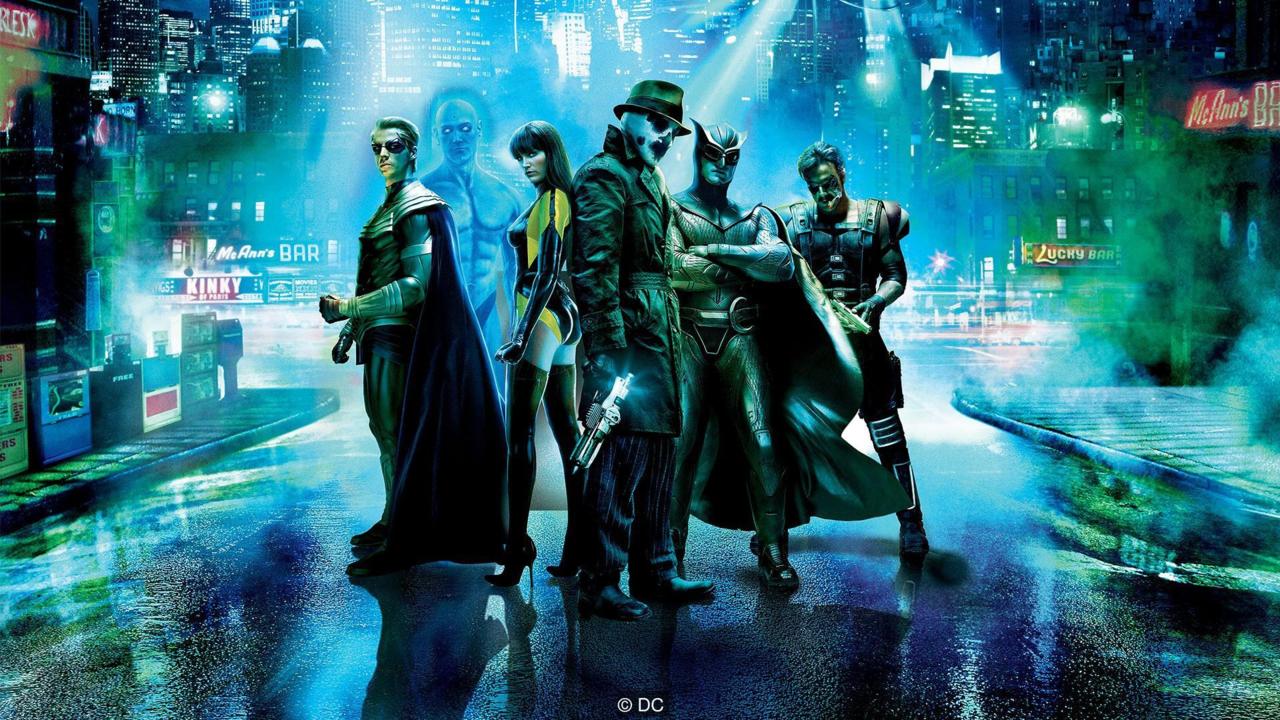But he totally prat-falled when it came to the ending.
First, the plan from the original story shifts from framing aliens humans will never find but would be able to at least hypothetically defend themselves against (as evidenced by the fact they just made a mistake in their invasion plans) to framing a guy who humans absolutely, positively cannot defend themselves against (as demonstrated by the fact he just casually destroyed two major cities) and who is going to live on Mars. This fundamentally changes the tone of the plan from “humanity will come together to face a common foe” to “humanity will behave itself or the angry god will come back to punish us”.
More importantly, Snyder screws up the execution. What makes the line haunting in the comic book is that you linger in a moment of stillness and silence; the reader basically joined Rorschach and Nite-Owl standing in a stunned silence as the horrible implications of that simple, casually spoken statement. (I’ve also always read the line as being delivered the same way someone might say, “I picked up the groceries today.” But I recognize that that’s idiosyncratic.)
Snyder doesn’t give you that moment. He doesn’t let the meaning of the words settle over you. He doesn’t give your imagination a moment to catch up to the rest of your brain and go, “HOLY SHIT!” Instead he:
- Cuts away from Ozymandias just before he says the line to a reaction shot of Rorschach and Nite-Owl.
- Has the camera in motion.
- Has the score rise to a crescendo.
- Hard cuts away from the line to immediately show what happened 35 minutes ago.
The entire effect is to anticipate (and thus undercut) the line; and then place the emphasis on the action to follow instead of the line itself.
All of that, by itself, would completely ruin the effectiveness of the line. (Which is why you never see anybody quoting the line who hasn’t read it in the comic book: In the movie, it’s simply not quotable.)
He also rewrites the line. The first of these (changing “Republic serial villain” to “comic book villain”) is largely irrelevant to the current discussion (although it does needlessly remove nuance; one of the major points in Watchmen is that in a world where superheroes actually exist, they aren’t perfect heroes — it isn’t the Marvel universe where the Marvel comics are actually published; it’s a universe where superhero comics didn’t exist). But the crucial change is from:
- “I did it thirty-five minutes ago.”
to:
- “I triggered it thirty-five minutes ago.”
And the semantic shift, though subtle, is not insignificant. If you trigger something, you have set it in motion (which inherently means you could still stop it). If you did something, on the other hand, then it’s done. This, too, effectively undercuts the ability for the finality of the line to land.
If I was teaching a class in film editing, I would cue this up along with the special editions of the Star Wars movies as examples of how subtle the difference in editing is between a great film and a mediocre one.
It actually reminds me of the story told by the scriptwriters for Casablanca. That film was infamously being rewritten basically up until the last day of shooting, and they had just written the famous ending to the film the day before it was filmed. (“Round up the usual suspects.”) So the director films it, it gets edited, and then they call the writers to tell them that the ending isn’t working. So the writers head over to the studio and they discover that they’re basically trying to do it in one take, “Major Strasser has been shot.” (looks at Rick) “Round up the usual suspects.”
And the writers say, “No, no, no. You have to say, ‘Major Strasser has been shot.’ And then cut to Rick. And then cut to Renault. And then cut to Rick. And then cut back for, ‘Round up the usual suspects.'” You have to see the thought. And so they recut the scene and, of course, it’s a classic.
THE SOUND OF SILENCE
Since I’m talking about this, I’d also like to delve a little deeper into what makes the original Moore/Gibbons storytelling in this moment so utterly compelling.
Look at the composition of the full page:
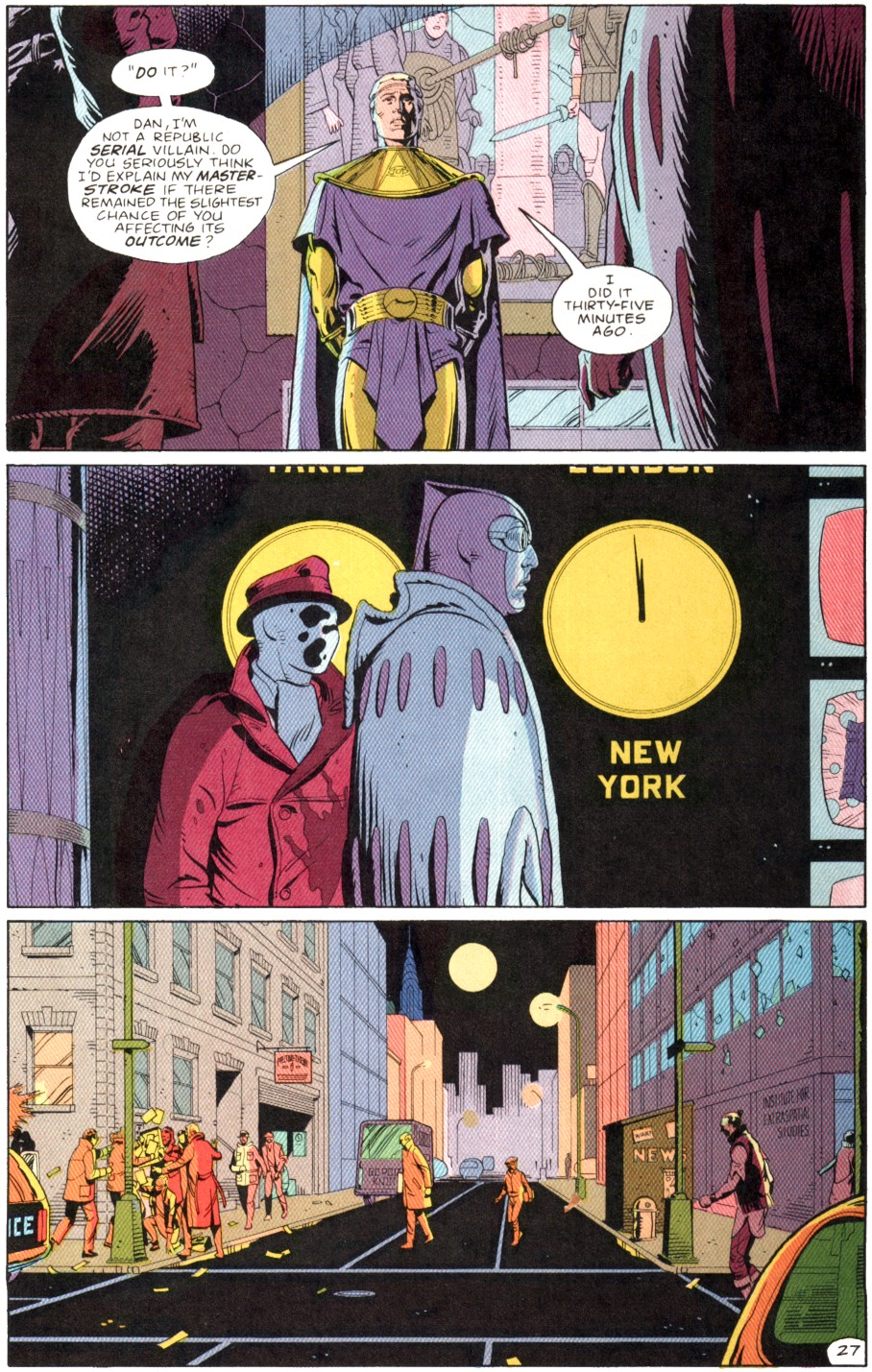
It consists of three panels, each taking up the full width of the page. (You can click any of these images to see them at a larger size.)
The first panel, of course, contains the definitive quote. The fact that it takes up a full page width causes the perceived moment to extend in the reader’s mind.
The second panel is a completely silent reaction shot of Rorschach and Nite Owl. Their faces are completely blank in shock; like they’ve been hit in the face with a two-by-four. Notably, the panel is framed to show a bank of clocks in the background. The current time in New York is shown as being one minute to midnight: Which is where the Doomsday Clock has been for the entire comic. Snyder tries to do the same thing, but (a) puts the reaction shot before the revelation and (b) makes the metaphor literal by showing the actual countdown clocks of the operation at 00:00 (which also means he cuts away from the moment).
The third panel shows a street in New York. Utterly silent. It is, in fact, the fourth page in a row which has the final, page-wide panel depict that New York street:
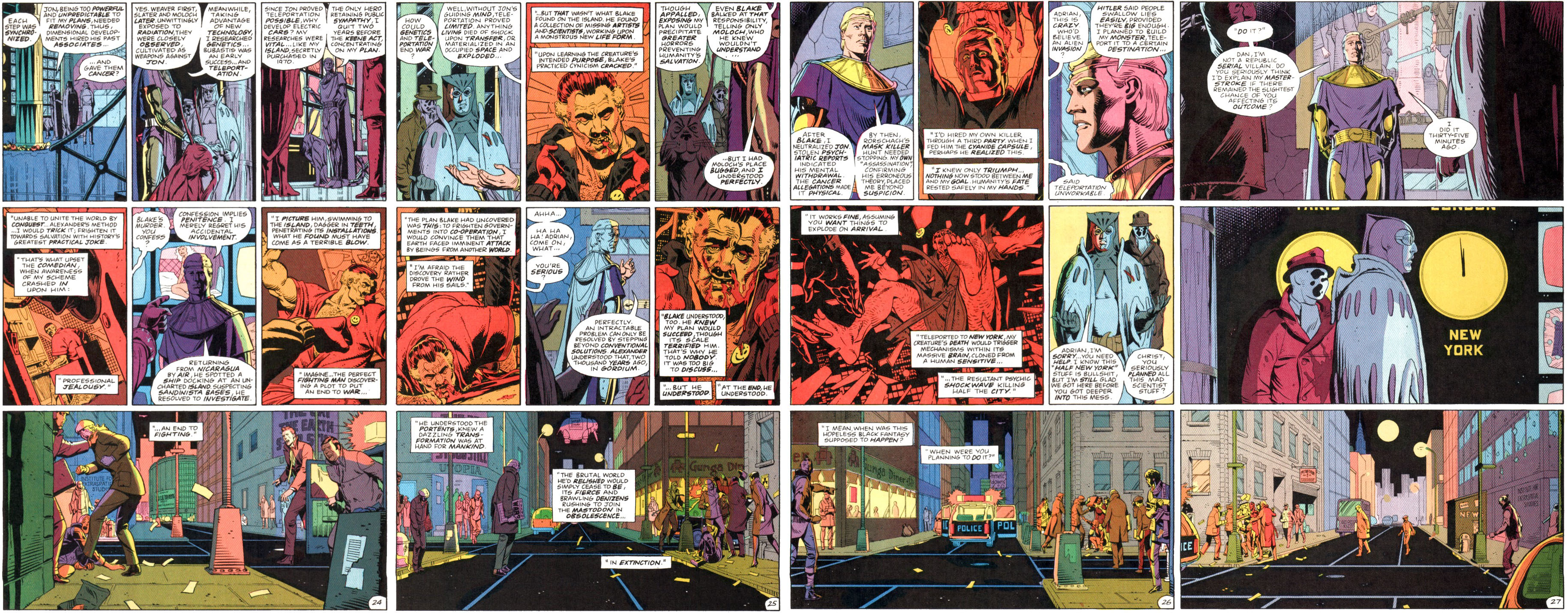
The previous instances had Ozymandias talking over them in captions; but this one does not — it further extends the moment of silence that persists in that room between Ozymandias, Rorschach, and Nite Owl. And it simultaneously reveals that all those shots of New York you were seeing were, in fact, in the past… which inevitably leads you to imagine the destruction which is about to happen.
And then you turn the page and there it is. But you still don’t actually see a giant explosion. You see people react to it. And then you see them vaporized by it:
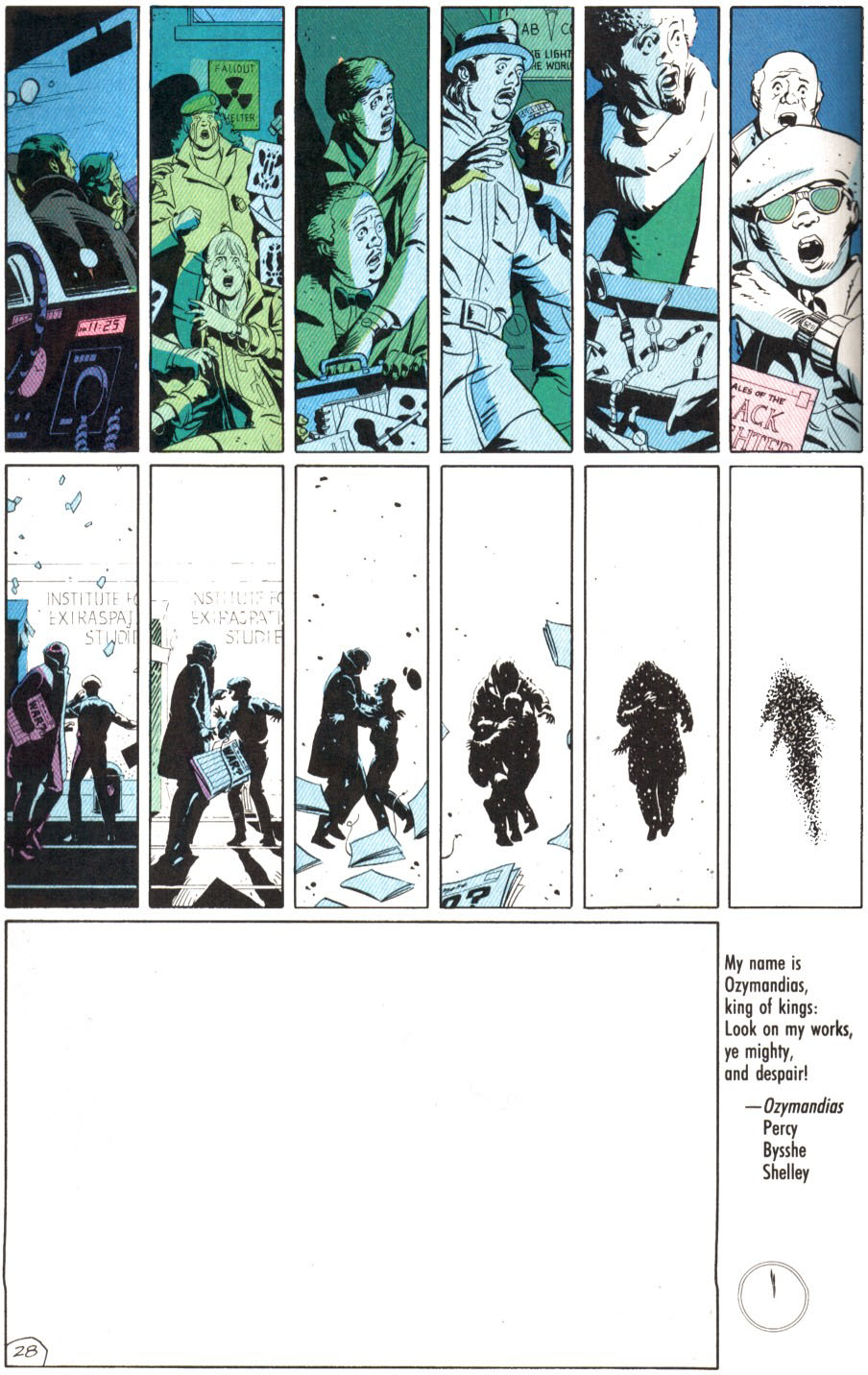
It’s absolutely brilliant visual storytelling in every single way.
Snyder, of course, goes for the disaster porn instead.

